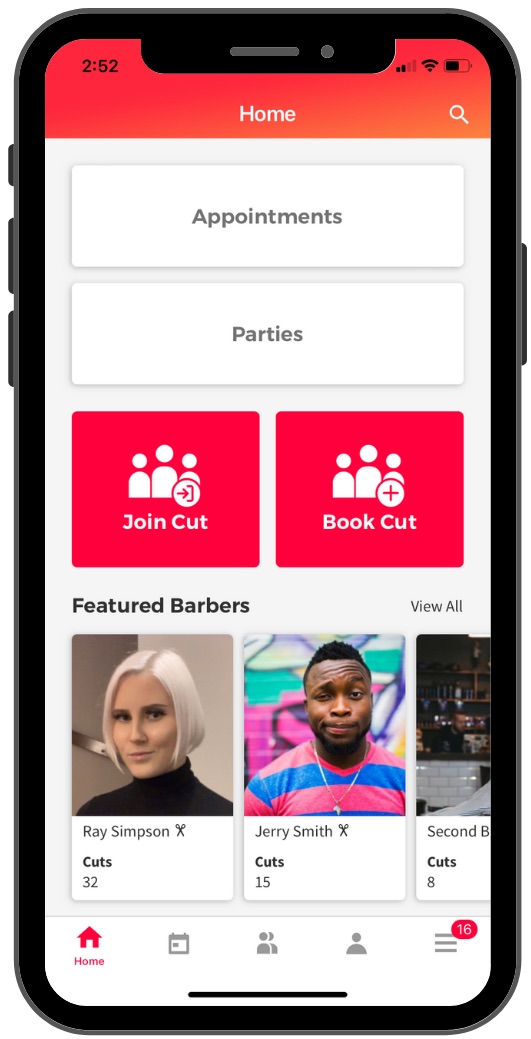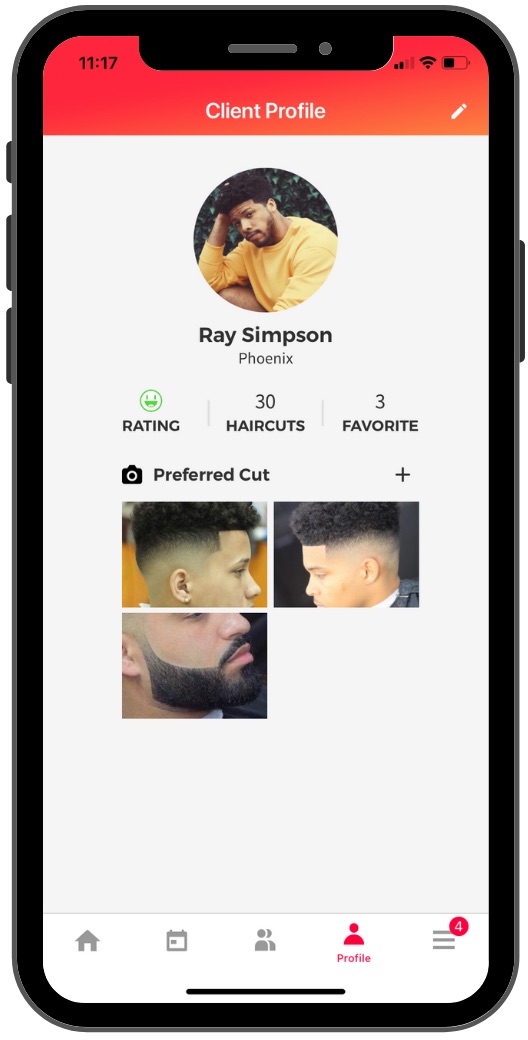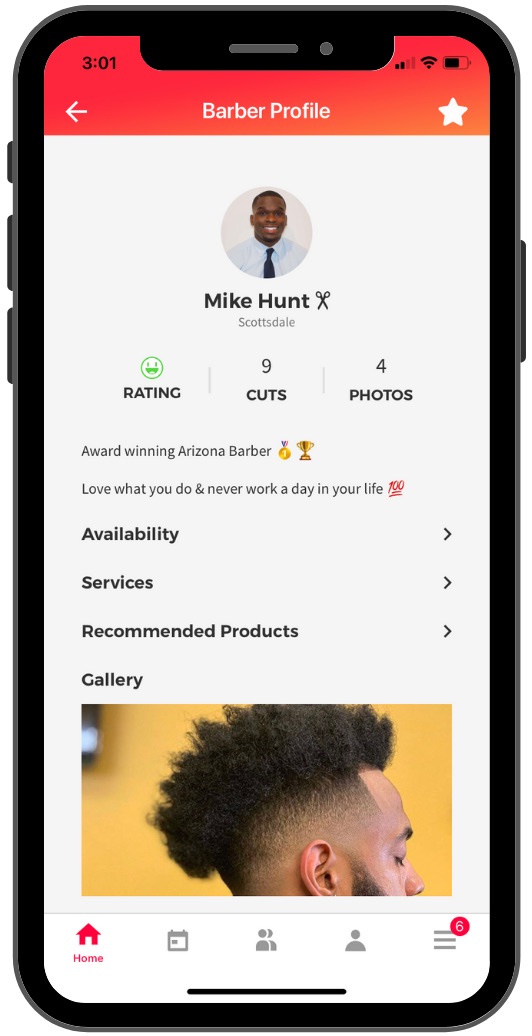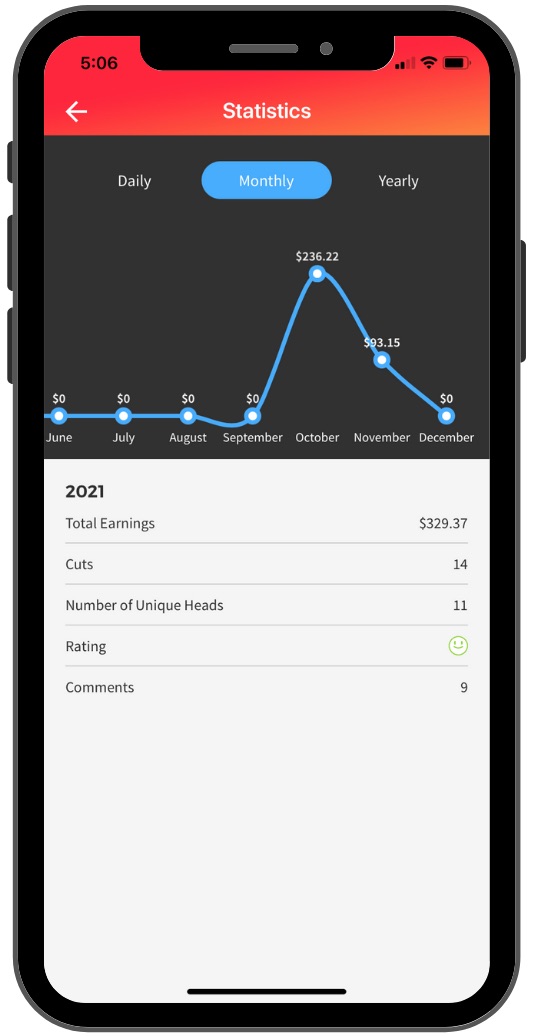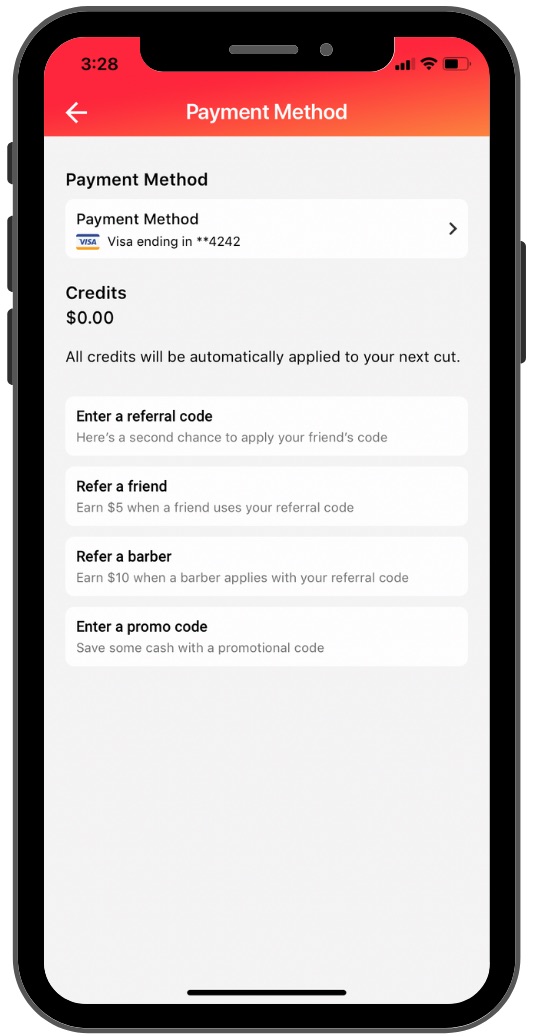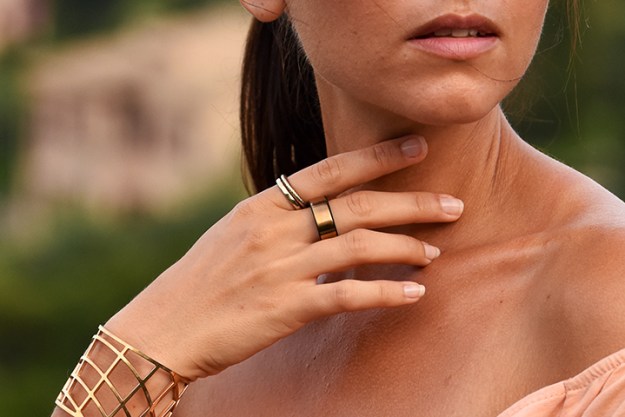It’s funny how we can take certain things for granted, like haircuts. Over the course of more than 50 years of living in different cities, different neighborhoods, or even visiting different countries, not once have I ever worried about whether I could find someone who could cut my hair the way I liked. Then again, I’m white.
But if you’re a person of color, it can be an entirely different experience. That’s what Kyle Parker discovered when he left his hometown of Chicago in 2013 to attend Grinnell College in Grinnell, Iowa, population 9,031. While 24% of Grinnell College’s students identify themselves as people of color, fewer than 10% of residents of the city of Grinnell would say the same of themselves.
So it’s not a surprise that finding a local barber or hairstylist with experience working with non-white hair, was challenging for Parker and his classmates. The Supercuts near campus didn’t exactly inspire confidence. “I would go into their shop and they would be like, ‘Oh man, I hope I don’t mess you up today,’” Parker recalled in an interview with Digital Trends. “That’s just the worst feeling.”

That left the promising NCAA basketball player with only a few options, none of which were ideal: Drive three hours to nearest big city in Iowa in the hopes of finding someone who knew what they were doing, take a chance on letting a teammate cut his hair, grow his hair out, or wait until a major holiday like Thanksgiving, when he could make the trip back to Chicago.
Parker also discovered that not being able to get your hair cut dependably wasn’t just an inconvenience, it was a blow to his general sense of mental well-being. “It’s not ‘you feel good, you perform good in life,’” Parker points out. “It’s ‘you look good, you feel good, you perform good.’ Most people don’t realize that.”
That’s not just a hunch. A 2016 study by Tamika Roper and John Barry of the University of London concluded that Black men are more likely than other groups of people to “find well-being benefits from a visit to the barber.” Those benefits are partly due to Parker’s insight that you need to like the way you look in order to feel good, but they’re also from the role that barbers and stylists have historically played in Black and Brown communities as informal therapists. The study claims that “Black men socialized and talked at the hairstylist significantly more than white men or Black or white women.”
Wondering if he was the only student of color who felt this way, Parker surveyed an incoming class of freshmen. When asked what their greatest concern was in coming to a new school in such a small community, a stunning 100% of them said “finding a barber” or “finding a hairstylist.”
An Uber for barbers
Armed with that information, Parker decided to do something about the lack of access to hair care professionals who he winkingly describes as “adept at our hair texture.” In 2016, at the end of his junior year, he began to work on a mobile app called ClipDart — an Uber for barbers, as he puts it — that would let people with coarse or straight hair connect with experienced barbers.
- 1. ClipDart home screen.
- 2. ClipDart client page.
- 3. ClipDart barber/stylist page.
Using ClipDart is very straightforward. After installing the app, you sign up with your email, and create a profile and add a photo. The photo is required of both clients and barbers and stylists so that each can see the other. The app also encourages you to add additional photos to your profile that illustrate the kind of hairstyle you’re looking for, which helps the barber to get a better sense of what you’ll be asking them to do, regardless of your hair type.
Groups of two or more get an automatic 25% discount, with bigger savings as the group size increases.
You can then book an appointment. That starts by choosing your location, since the app is designed to only show you professionals who work within 40 miles of where you want to get your hair cut. Flexibility is central to the design — you can choose virtually any location, including your home, a school residence, your workplace, or even a public setting like a park.
The app finds all of the registered barbers that are available, and presents a set of bookable services that correspond to what these barbers offer. If none of the barbers perform a specific service, like coloring, it won’t be shown as an option.
Individual appointments are the default, but ClipDart also includes an easy way to create group bookings. Groups are not only more fun for the clients, they make great financial sense for both clients and barbers: Groups of two or more get an automatic 25% discount, with bigger savings as the group size increases. And a barber who has taken the time to travel up to 40 miles round trip gets to maximize their profits.
Much like Uber, both barbers and clients can be rated within ClipDart, and a barber can always turn down a client appointment request if that client’s rating isn’t great, or if they’re simply too far away for the barber to accommodate the request for the specified date and time. ClipDart vets each barber or stylist that joins the platform. “We do background checks,” Parker confirms. “They have to be licensed before they can even use the app. Our number one concern is safety.”
Like Uber or even the Apple App Store, ClipDart collects 20% of the service fee. But Parker points out that it’s still a better deal for barbers than the traditional barbershop arrangement, in which a barber will rarely see more than 60% of the cost of a cut. When you combine that with ClipDart’s slightly higher fee structure (to offset the travel component), Parker believes most barbers will be able to clear $35 to $40 per hour (before any applicable tips).
COVID-19 cuts in
The process of developing the app proved to be a challenge. Parker was still actively pursuing his studies and a basketball career that would eventually take him to Germany, where he played professionally, so making the app was necessarily a side hustle — but one that he obsessed over. “I put everything I had straight into this app,” he recalls. “Every time I made money from basketball games, every time I had an internship over the summer, I put it straight in.”
Four years later, ClipDart was nearing the finish line. But as (bad) luck would have it, two days before the official launch of app on the iOS App Store, on March 15, 2020, COVID-19 threw the world into total disarray. “It’s extremely devastating to work that long on something. And we couldn’t release the app, because it’s not like it is now. Nobody even knew the word COVID. We just knew it was killing people.”
Parker got Luther College’s administration to pay this fee, making the haircuts free to students.
Running headlong into an unexpected roadblock happens to entrepreneurs a lot. Sometimes, if it’s a deal-breaker, they’ll throw in the towel and start a different venture entirely. But many use it as an opportunity to rethink their approach and find a way to pivot. Parker realized that the pandemic was a blessing in disguise, one that forced him to think hard about his fledgling company’s mission: “To improve the mental wellness of people all around the world through barbers and stylists.” So he returned to the college environment that spawned the idea for ClipDart, but this time, he was going to actively recruit the participation of the school itself.
He convinced Luther College in Decorah, Iowa — 150 miles away from his alma mater in Grinnell — to contract with ClipDart in order to bring some of the most experienced barbers in the state to the campus, at a cost of between $60 to $100 per hour. Better yet, Parker got Luther’s administration to pay this fee, making the haircuts free to students. It turned out to be a win-win for everyone. The school got a turnkey and affordable way to significantly improve inclusiveness, diversity, and equity for its students and staff, mental wellness improved for those who received haircuts, and there was even a double upside for the barbers and stylists: They demonstrated that they were indeed essential service providers, and they made a lot more money than if they had performed the same service in a barbershop. It also gave Parker and ClipDart a much-needed proof of concept.
“At the end of the day, that’s just what we want, just want to be able to talk to somebody.”
Today, Luther College continues to use ClipDart-sourced barbers every two weeks for appointments and it has been joined by schools in Arizona, Nevada, Minnesota, and Wisconsin. ClipDart has partnered with hospitals, senior living centers, and conferences, too, and continues to add new partnerships regularly.
A bigger vision
The pandemic also helped bring another aspect of the ClipDart vision into sharper focus: Charitable giving. Parker decided that ClipDart needed to do more to help the mental well-being of those in need. Starting in December 2020, he partnered with a variety of nonprofits to conduct a series of “Days of Duty” events to provide free food, clothes, showers, and haircuts.
Much to Parker’s surprise, attendees often bypassed the food, clothes, and showers and headed straight for the barbers. When he asked them why, they said what they really wanted was to be able to sit for 45 minutes and have a conversation with someone. “At the end of the day,” Parker observes, “that’s just what we want, just want to be able to talk to somebody, talk about our trials and tribulations and be honest and open.”
Each of these events serves around 100 to 150 people over the course of about three hours. The effort proved so successful that earlier in 2022, ClipDart created its own registered 501(c)(3) charitable organization, called The ClipDart Giveback, to continue the work.
“We know that this mental wellness crisis is all around the world and we have to fix it. That’s our mission.”
As ClipDart’s nonprofit and for-profit partnerships began to mature, Parker turned his attention back to the mobile app that had been shelved in 2020. The ClipDart app made its official debut on the Apple App Store on February 14, 2022. There’s an Android version of ClipDart too, though until it gets added to the Google Play Store, it’s only available as a sideloadable APK.
As a newly launched service, ClipDart barbers are still concentrated in just one market: Phoenix. Parker has decided to focus his limited marketing resources on that metro area and then attempt to grow to other locations as the app starts to pick up steam. It’s a formula that worked well for Uber and Parker believes it can work for ClipDart, too. He believes that the virtuous circle he has created via the ClipDart Giveback organization will also help drive adoption by both barbers and clients alike.
“Everything feeds off itself. The more barbers we get at the ClipDart Giveback, the more they understand how essential they are, the more they understand that this is about mental wellness, not about money — even though they’re getting paid,” he said.
As for the future, there’s apparently no limits to the ClipDart vision. Parker sees the three pillars of the company — the app, the partnerships, and the Giveback — as the key to an eventual global expansion, bringing the benefits of a really good haircut to all who need it, whether they can afford the full fee or not. “This is not about just making ClipDart bigger. We know that this mental wellness crisis is all around the world and we have to fix it. That’s our mission,” Parker said.

